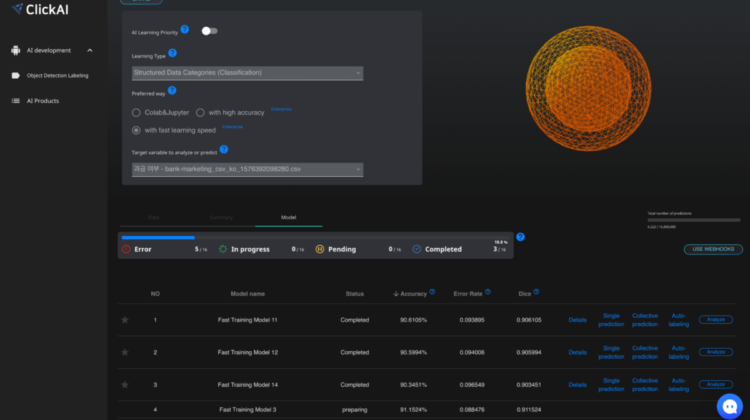
Artificial Intelligence Engineers are experts who develop various artificial intelligence techniques and apply them to specific industries. Over the years, AI engineers have been working on developing machines that think like humans. Artificial intelligence developed with this goal in mind does not simply perform tasks according to commands, but thinks like humans and performs things in a better way, proving to have a great influence in the [Business World] and other industries.
One of the best examples of how artificial intelligence has helped industrial development can be found within the automotive sector. Technologies such as autonomous driving, automatic car maintenance, and navigation that help you as a driver are all developed using artificial intelligence. By letting AI into the vehicles, drivers can feel more comfortable and safe on the roads.
The demand for artificial intelligence engineers who are capable of developing such breakthrough technologies is increasing over time.
AI engineers must have a deep knowledge of machine learning, including the ability to build models and perform validation. You also need to decide whether the model is ready to be deployed and whether it needs to be maintained or replaced at certain moments in time. The ultimate goal of AI is not to build machines that can learn but, more importantly, to build machines capable of self-analysis and improvement.
- AI algorithm creation and distribution
AI-based systems run based on algorithms. These intelligent algorithms, combined with iterative processing, allow the software to learn by itself. AI engineer writes the code necessary for the machine to work. Coding is the most difficult part of developing AI-based systems, and engineers need to study the product’s requirements and understand what logic or algorithms to apply before writing the code.
- Building infrastructure for data science
AI is widely used for data extraction and analysis. AI software engineers ensure that environments created during product development are easily replicated and managed after the final product is ready. They are also responsible for setting up and managing the production and development of AI infrastructure. On the other hand, the AI hardware engineer is responsible for assembling, setting up, and configuring the machine to allow the exquisite AI models to function properly.
Engineers collect data and run against machine learning algorithms to identify common pitfalls. They work with data scientists and architects and business analysts to ensure that the analytics backend meets the business goals. AI engineers are responsible for keeping the innovations in the field of artificial intelligence up to date. Handling big data is common for engineers working on large projects as data analysis leads to identifying solutions for a variety of problems.
- Natural language processing
NLP is an area of research focused on improving the communication skills of humans and computers/machines. The goal is to improve the way machines respond to human voices or commands. Like with machine learning, NLP works using big data and algorithms. Good examples of NLP applications are voice assistants such as Siri and Alexa. This technology is designed to gain a deeper understanding of human language until it reaches a point where a machine can infer what a person wants when presented with a whole new set of requests or commands.
Image processing algorithms allow you to analyze what objects machines and robots recognize and how they react accordingly. From an engineer’s point of view, this means that machines can identify structural and other problems in any manufacturing or production process, as well as apply image recognition to many other fields. For AI engineers the knowledge of such algorithms is invaluable given its widespread use across all industries today.
Data analysts and scientists, as well as software developers, can use the CLICK AI platform to accelerate their transition to AI engineers using its automated machine learning capabilities.
CLICK AI implements artificial intelligence with one click without cumbersome coding by preparing and preprocessing data, developing and verifying the model.
CLICK AI creates industry-specific artificial intelligence to introduce high-accuracy AI and help users make business decisions at higher strategic points than they normally do.
